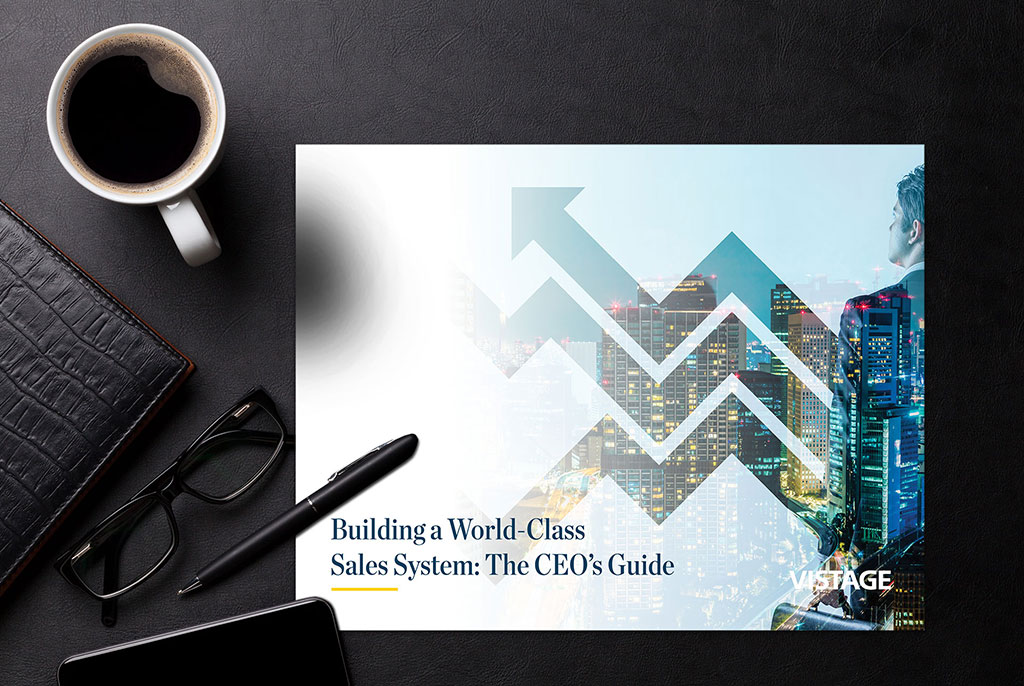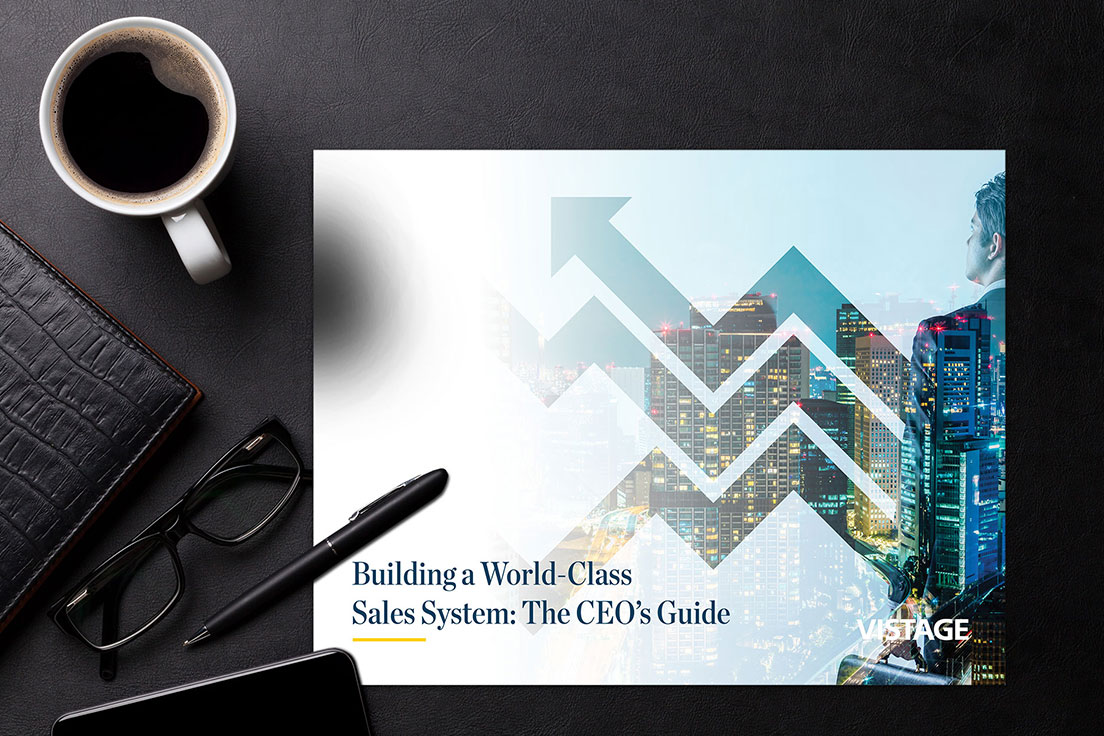Restarting the growth engine: Managing sales through COVID-19 [report]

As we head into 2021, the COVID-19 crisis has changed everything and sales is no exception. The economic collapse and uneven recovery have left some small and midsize businesses (SMBs) in great shape – our most recent data revealed that 36% of CEOs report stable or increased revenues – while others continue to struggle. In Decision Factors: Climb to Recovery we found that sales and selling is the #2 business challenge CEOs are facing as sales cycles have slowed and engaging new accounts has become even more difficult.
For 10 years, economic growth was slow but steady, and then COVID-19 slammed on the brakes. The impact on how businesses engage with customers was immediate and dramatic. Overnight, face-to-face selling stopped and customers went into shutdown mode, buying only the essentials.
In the months since then, we’ve seen signs of life and many businesses are well on the road to recovery. While leaders of SMBs continue to manage the new challenges that have arisen from COVID-19, they also need to prepare for the future. In our most recent research report, Building a World-Class Sales System: The CEO’s Guide, we created a series of frameworks for SMB CEOs to consider as they prepare their sales teams to capitalize on the pent up buying demand that will be released once the pandemic has passed. The Sales System provides CEOs with a consistent lens to evaluate and make decisions on the state of their current sales function and how it needs to evolve as the business grows.
Sales: The big slowdown
Sales professionals are experiencing a big slowdown with customers. Getting customers to re-engage and prospects to pay attention has reached a critical juncture, both for the organizations that have experienced revenue declines during the pandemic and those that have prospered in spite of it. Uncertainty about the economy and COVID-19 has caused everything to slow down.
The economic shutdown and uncertainty regarding the future has led to complications in five key areas of sales:
Longer Sales Cycles: SMBs are experiencing longer sales cycles with more people involved and more delays. In part, this is due to customer reticence to make decisions or incur risk, along with smaller deal sizes and strict ROI requirements from finance. Pipelines are smaller, less reliable and falling short of revenue goals and expectations.
Disengaged Prospects: CEOs report difficulties with getting prospects’ attention, generating leads, finding new prospects and developing new business with existing accounts. Even interested prospects are cautious and reluctant to pull the trigger on new investments. Thirsty competitors only complicate this problem by slowing decision-making.
Cautious Decision-Makers: The unpredictability of the economy and its impact on verticals have pushed decision-makers into an ultra-cautious mode of cash conservation. Conscious of falling demand for their products and services from their customers, decision-makers are opting for smaller deals or postponing strategic investments until the markets improve.
Inability to Travel: Safety concerns have radically reduced sales-related business travel. Some businesses are now targeting local markets only, and many cautious customers are unwilling to meet face-to-face with sales professionals. This has put pressure on companies to maintain relationships with existing customers and while making it harder to establish new ones.
Virtual Selling: Social and virtual selling has been a staple of inside sales for many years. Now, with customers either locked down or working from home, field sales people have had to quickly learn and internalize virtual selling. Adapting to this environment and approach presents a major challenge, whether salespeople are visiting customers, conducting virtual meetings, making calls or participating in trade shows. Customers are also having to adapt to buying virtually.
Embracing new buyer behaviors
Eventually, we will realize a new reality and once again move freely in the world. Until that time, CEOs will need to ensure their sales teams are prepared to thrive in the recovery and capitalize on a post-COVID-19 marketplace. Here are four things CEOs need to focus on to improve sales performance now.
- Invest in training: The skills and tactics of virtual selling are new and different. They do not replace existing skills; rather, they complement them in a way that fits the two-dimensional experience of virtual selling. Recognizing customers are going through a learning curve as well, sales professionals must adapt to virtual interactions or risk alienating current customers and being ignored by new ones.
- Redefine the process: Customer buying behavior has changed. Your sales process has to reflect and adapt to those changes and tune into buyer dynamics in a COVID-19 world. Driving collaboration and best-practice sharing will speed knowledge transfers and refine processes. Solving for changed buyer behaviors, one salesperson at a time, is a losing strategy.
- Connect with customers: Salespeople must connect with customers to understand how their business has changed. Partnering with them in times of distress will be rewarded when prosperity returns. Understanding your customer’s customer is essential to building a plan to maintain and grow your customer base.
- Target competitive accounts: Now is the time to approach those long-desired competitive accounts. Maybe your competitors haven’t connected well with their customers, creating a once-in-a-pandemic opportunity to break through with examples of how you have partnered with your customers. Invite them to experience how you would work with them.
Despite positive news of vaccines, our behaviors and how we engage with others will be limited for the foreseeable future. The absence of face-to-face selling has shifted the buyer-seller human dynamic. Sellers must continue to adapt to new buyer behaviors, and they must do it in a virtual environment. Selling now demands new sales behaviors to succeed, and CEOs must hold their sales team accountable for developing these behaviors to restart the growth engine.
Access your copy of Building a World-Class Sales System:
The CEO’s guide


